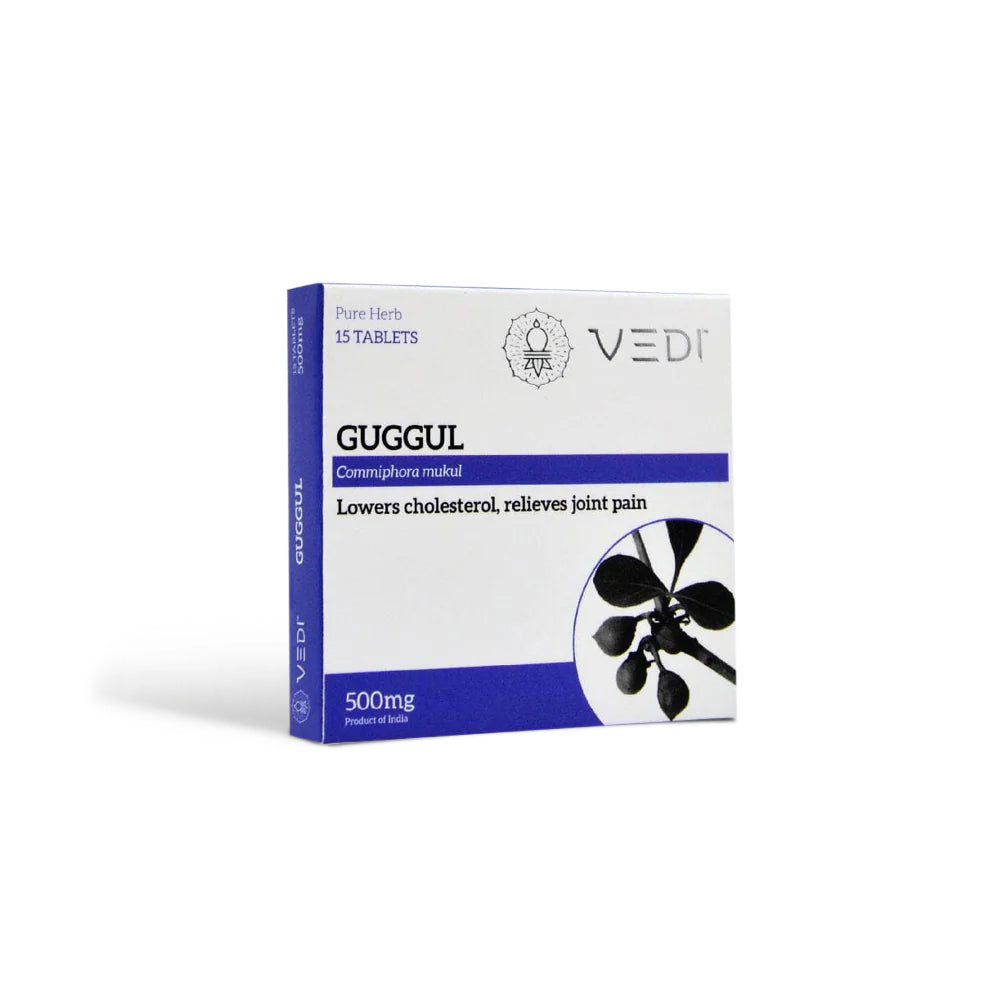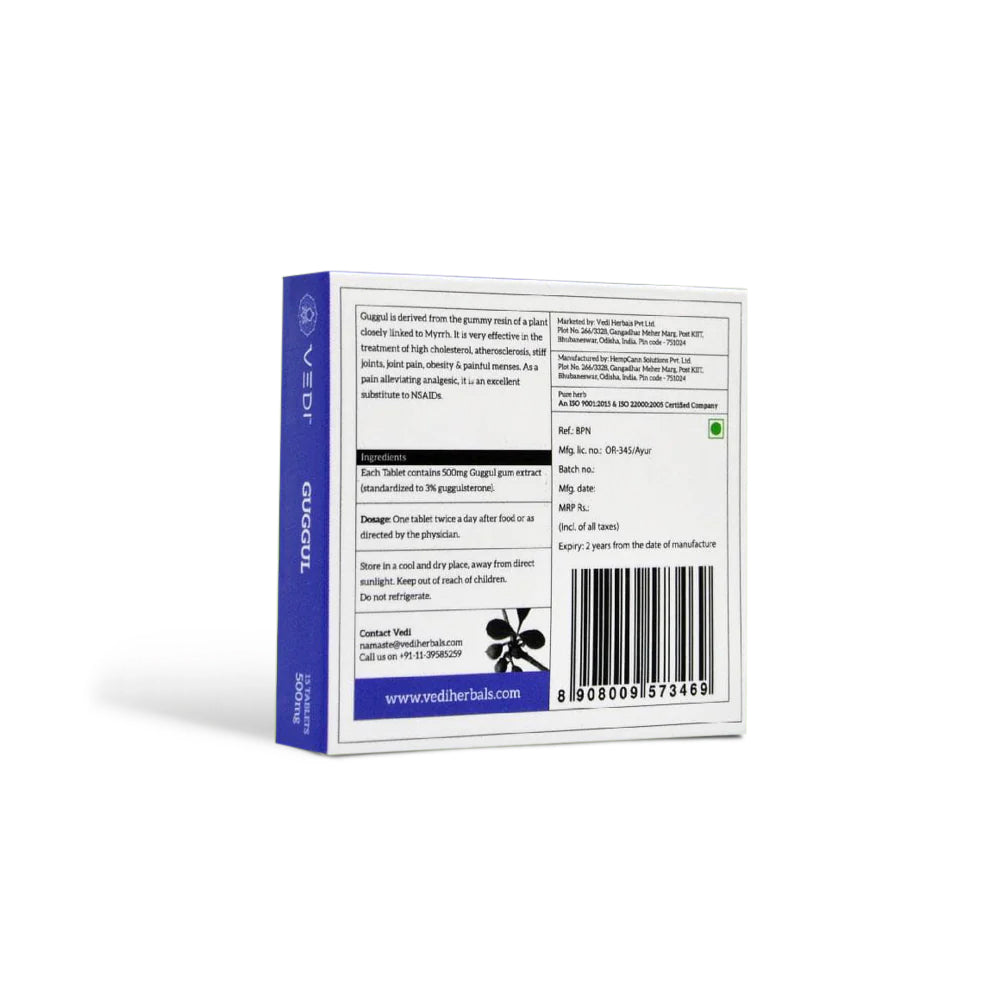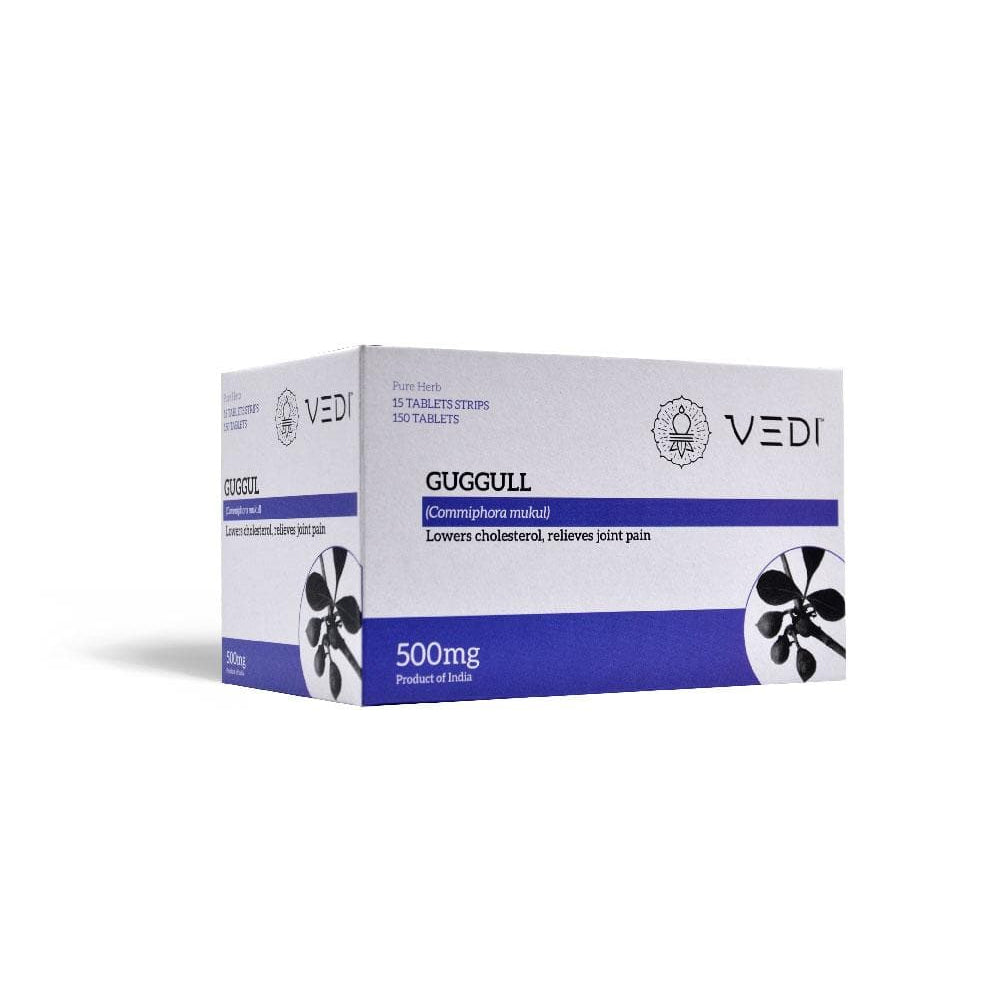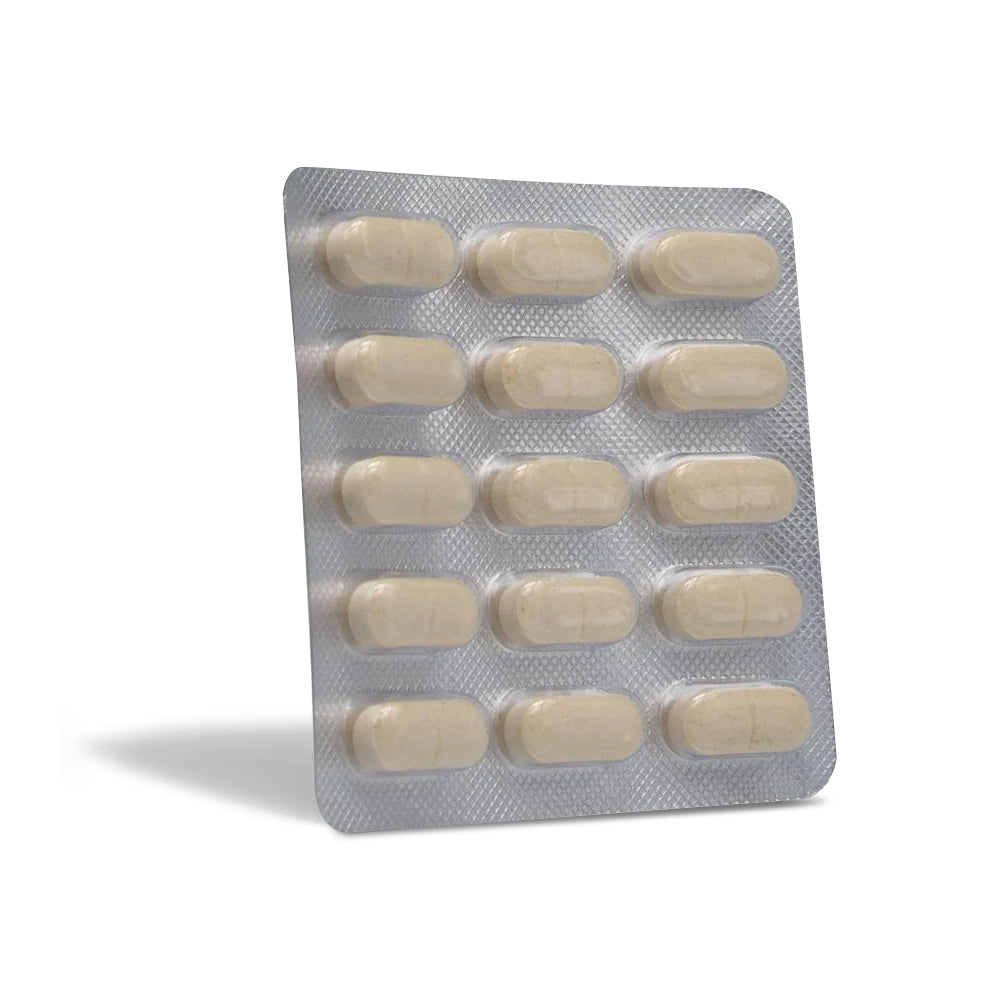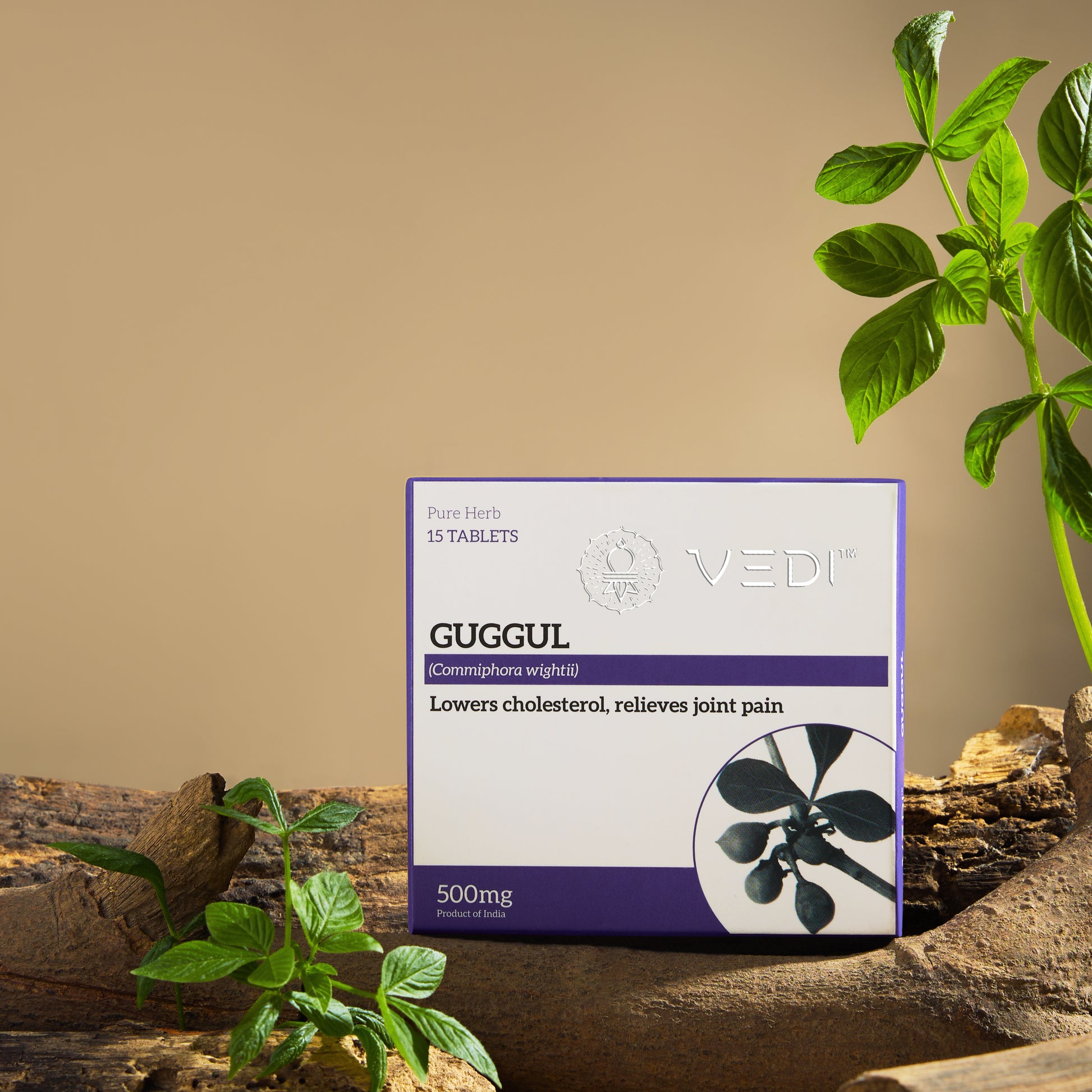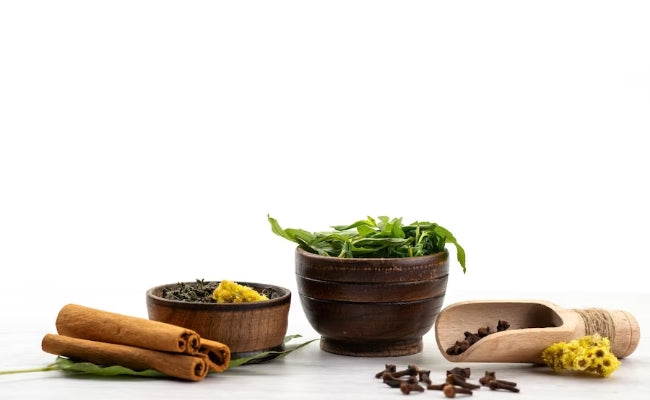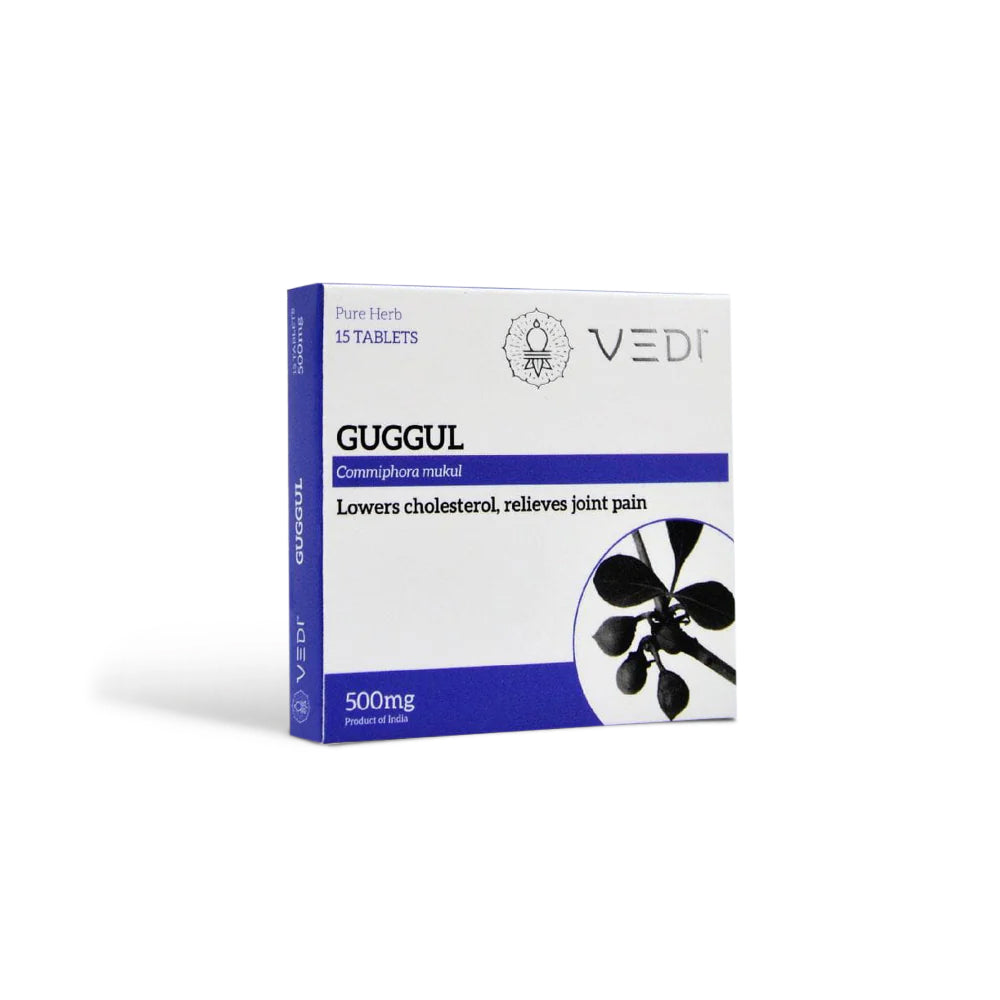
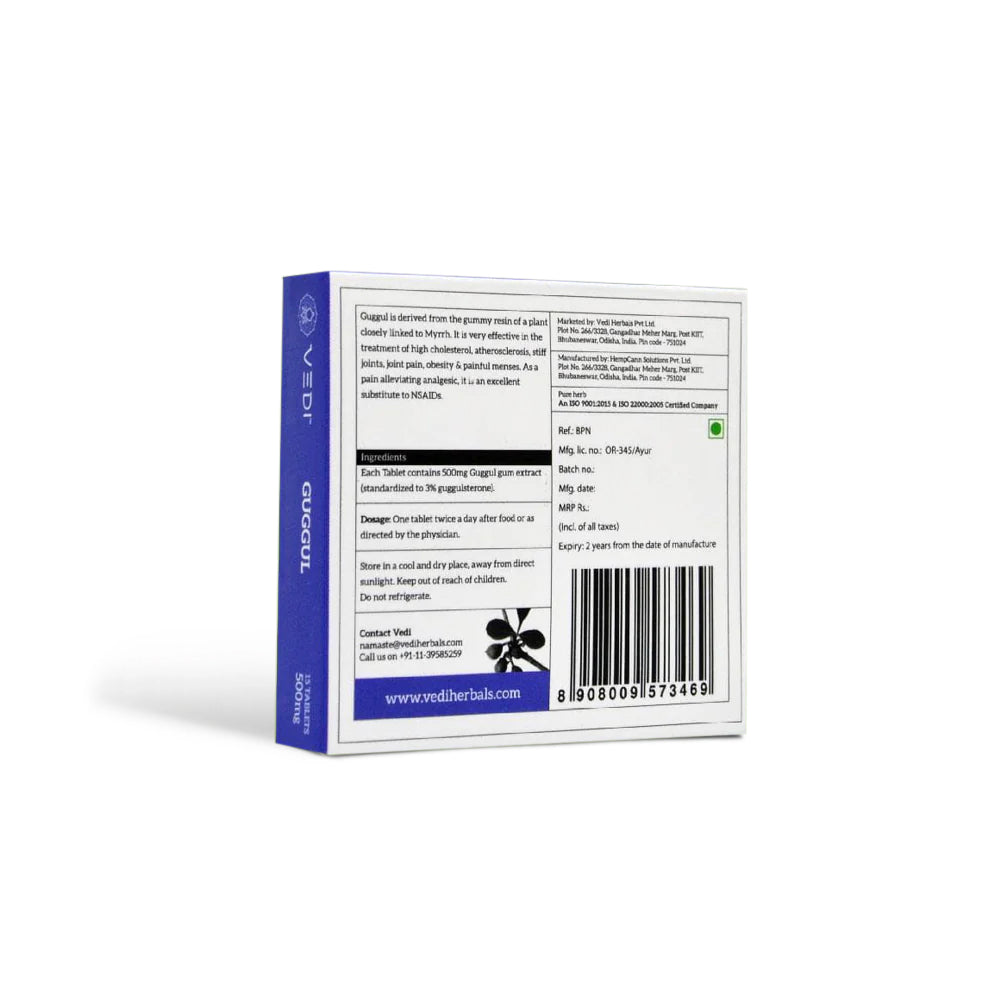
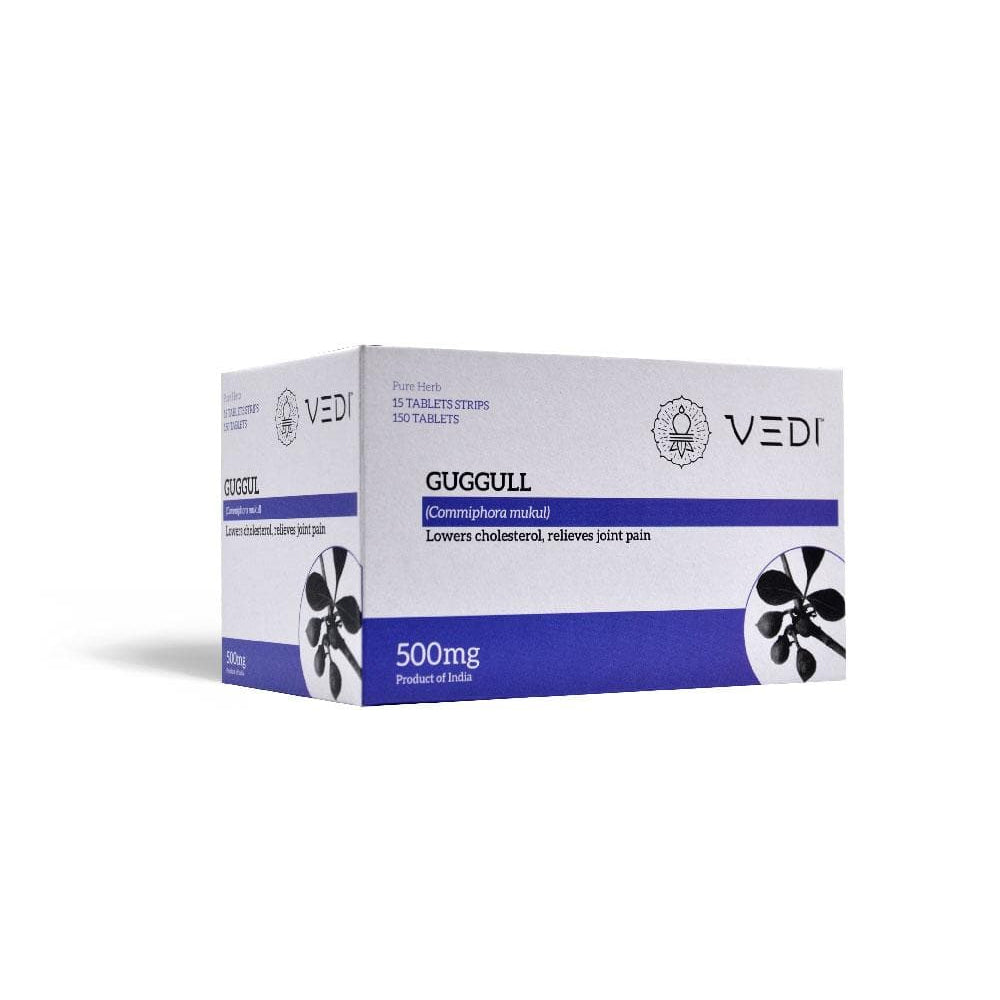
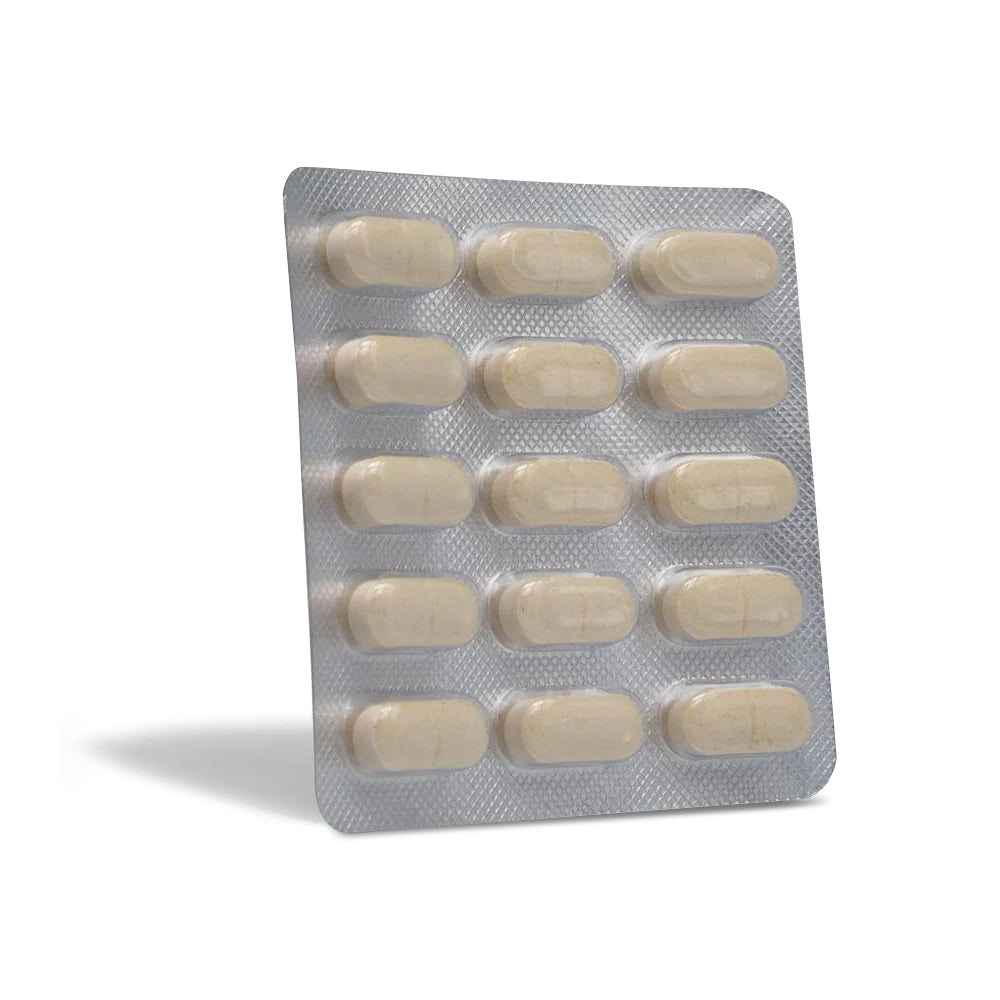
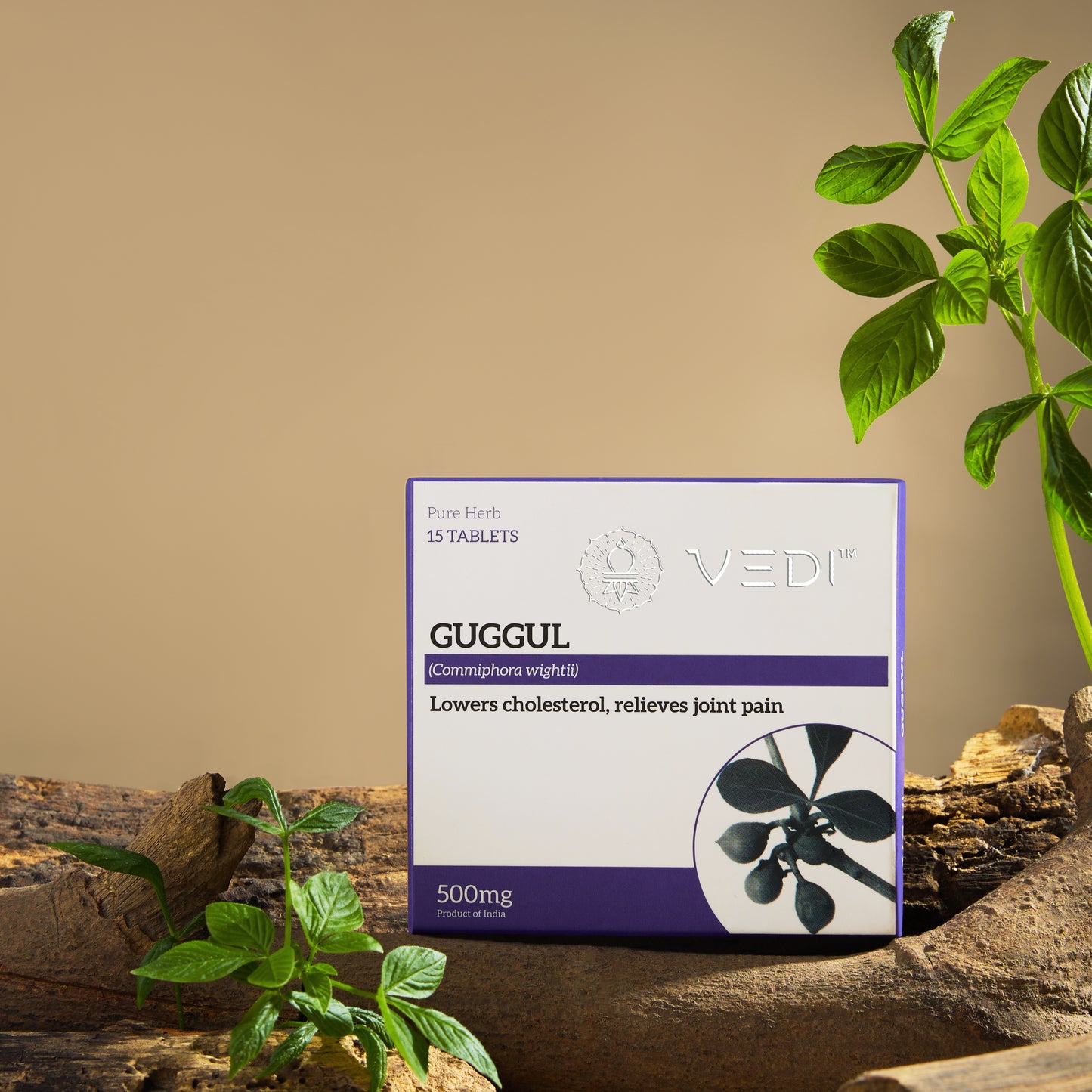
Description
FAQ's
Yes, Guggul has traditionally been used to lower bad cholesterol (LDL) and improve overall circulation, benefiting heart health and joint pain relief.
Studies have shown that guggul can help lower LDL (bad) cholesterol and triglycerides while increasing HDL (good) cholesterol. A clinical study showed that taking guggul reduced LDL levels and improved cholesterol balance.
Guggul (Commiphora mukul) in its pure gum extract form, standardized to contain guggulsterone, is typically best for treating joint pain. It has anti-inflammatory properties that help reduce pain and stiffness, especially in conditions like osteoarthritis.
Yes, guggul can be taken daily as long as it is recommended. Typically, one tablet is taken twice a day after food. However, it's important to consult a healthcare provider for personalized guidance, especially if you have any pre-existing health conditions.
"Guggul" and "Guggulu" refer to the same substance derived from the resin of the Commiphora mukul plant. The terms are used interchangeably in Ayurveda, with "Guggulu" being a traditional Sanskrit name for the resin.
Yes, guggul and ashwagandha can be taken together. Both are natural Ayurvedic herbs with different benefits—guggul helps with cholesterol and joint pain, while ashwagandha is known for stress relief and boosting energy levels. Combining them can offer synergistic health benefits, but it's always a good idea to check with a healthcare provider before starting any new supplement regimen.
Guggul has a distinct, strong, and somewhat earthy or resinous odor. It is often described as having a sharp, medicinal fragrance due to its natural gum resin.
No, Gular and Guggul are not the same. Gular (Ficus glomerata) is a different plant, also known for its medicinal properties in Ayurveda, particularly for digestive and respiratory health. Guggul (Commiphora mukul) is used mainly for managing cholesterol, joint pain, and inflammation.
The Indian name for guggul is "Guggulu" (गुग्गुलु) in Sanskrit, commonly used in Ayurvedic medicine for its health benefits. Here are the names in other Indian languages: ● Hindi: गुग्गुल (Guggul) ● Gujarati: ગુગલ (Gugal) ● Kannada: गुग्गुल (Guggul) ● Telugu: గుక్కుల్ చెట్ట (Gukkul chetta)

